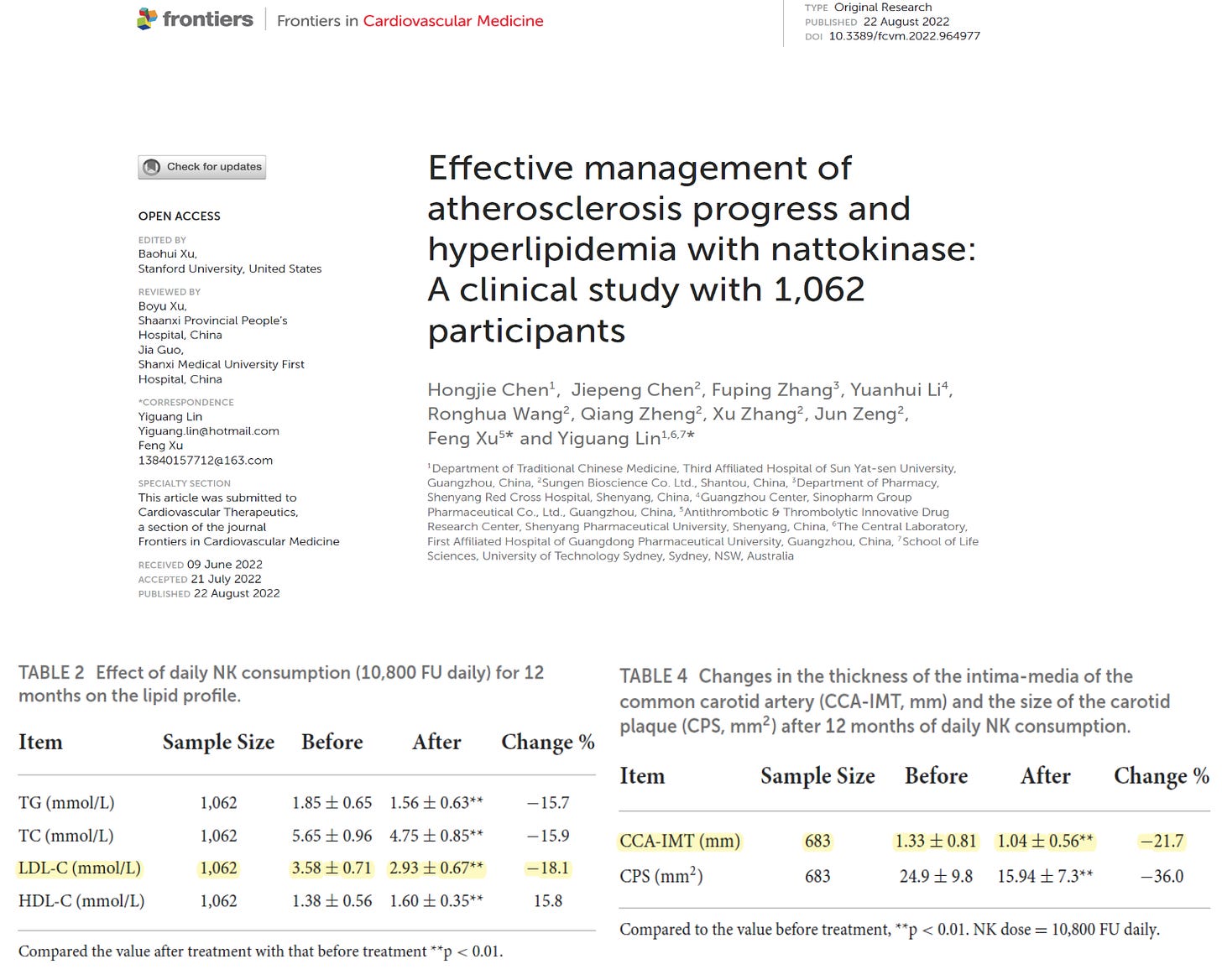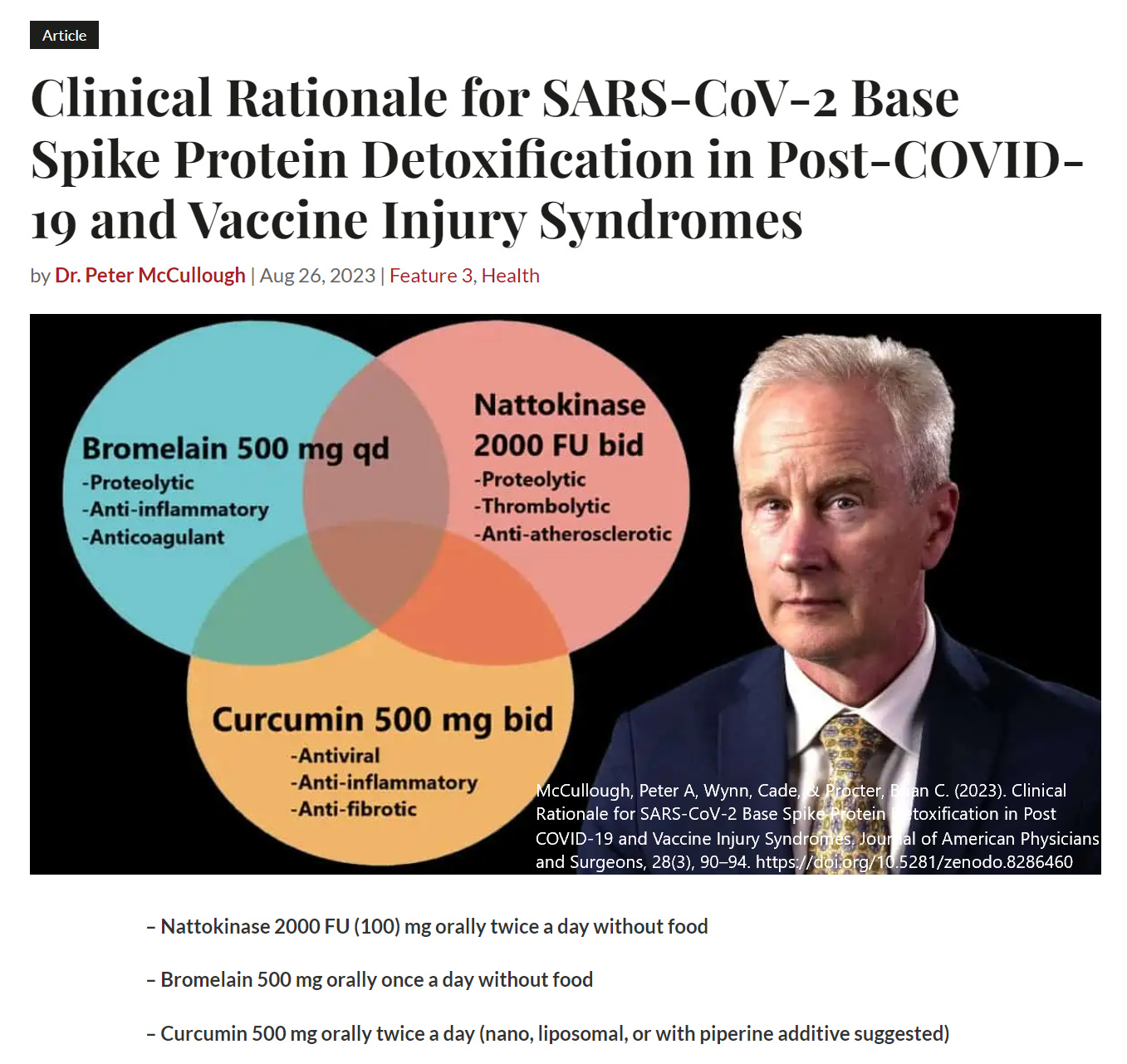One Year of Nattokinase Yields Favorable Effects on Cardiovascular System
Large Prospective Cohort Demonstrates Reductions in LDL-C and Carotid Atherosclerosis
By Peter A. McCullough, MD, MPH
Mito City in Ibaraki prefecture is said to be the birthplace of natto in Japan. In the 1080s, chief commander Minamoto no Yoshiie (1039 - 1106) and his army were campaigning in the north-east of the archipelago. The soldiers were attacked as they were boiling soybeans to feed their horses. They quickly wrapped up their preparation in rice straw and forgot about it for a few days. Then, they discovered the beans had fermented. Curious, one of the soldiers tasted it and enjoyed it. The food was offered to the general who enjoyed it as well and named it nattô (納豆), meaning "beans destined to the shogun" (将軍に納めた豆).
Today, nattokinase is widely used as a oral supplement in capsule form in Base Spike Detoxification to help degrade the long-lasting SARS-CoV-2 Spike protein for 3-12 months in patients suffering from symptoms of long-COVID after the infection or more commonly after mRNA vaccination. Because some of the higher risk long-COVID patients also have atherosclerotic cardiovascular disease, nattokinase has other important effects in the body.
Chen et al, performed a prospective cohort study of 1,062 patients with risk for or manifest carotid atherosclerosis treated with high-dose nattokinase 10,800 FU per day. For long-COVID the usual dose is only 4,000 FU per day. Chen reported Nattokinase resulted in an 18.1% reduction in LDL-C from 138.4 to 113.3 mg/dl. A total of 84.3% of subjects had a reduction in LDL-C. This was associated with a 21.7% reduction in carotid intima-medial thickness, a measure of atherosclerosis, which at baseline was elevated.

Future large prospective, double-blind, placebo-controlled trials are required to make therapeutic claims such as “reduction in atherosclerosis” or “reduction in the risks of cardiovascular events such as myocardial infarction, stroke, cardiovascular death.” In the meantime these data are strongly positive for Nattokinase conferring cardiovascular benefit. Clinically I use these data to additionally advise on higher doses in patients with combined severe long-COVID and cardiovascular disease.
The main two caveats with Nattokinase are: 1) bleeding, and 2) soy allergy. Provided patients and doctors are aware of these manageable risks, I anticipate we will see a considerable surge in the use of Nattokinase over the next several years.
Please subscribe to Courageous Discourse as a paying or founder member so we can continue to bring you the truth.
Peter A. McCullough, MD, MPH
President, McCullough Foundation






How long till they ban Nattokinase?
Thanks for that doc. I'm really trying to spread this to those who don't close their ears.